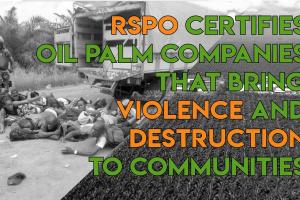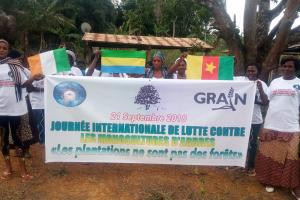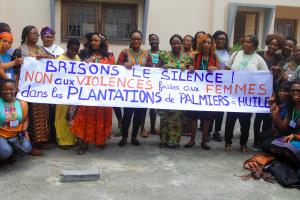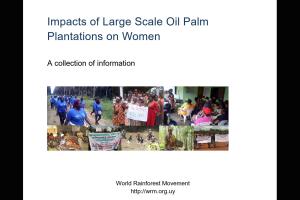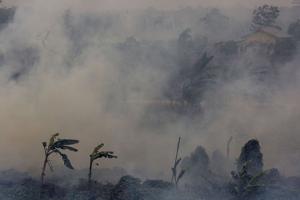Palm Oil
The oil palm tree is native to West Africa. It is an important tree for forest-dependent communities, their cultures and their economies. However, large-scale oil palm monocultures for industrial production (oil and agrofuels) have been driving deforestation and land grabbing in Southeast Asia. More recently, oil palm monocultures are also driving destruction in Africa and Latin America.
Friends of the Earth International and the World Rainforest Movement have launched an international sign-on statement denouncing the Roundtable on Sustainable Palm Oil (RSPO).
On November 12, with the endorsement of organizations from five continents, Friends of the Earth International and World Rainforest Movement publish an open statement denouncing the failure of the RSPO to eliminate the violence and destruction that oil palm plantations.
We invite organizations to sign on and support the statement, which denounces that the RSPO, since it was created 14 years ago, has been a tool that served the corporate interests of the oil palm sector
Nine communities from the DR Congo took a historic step this week by filing a complaint with the complaints mechanism of the German development bank (Deutsche Investitions- und Entwicklungsgesellschaft – DEG)
We invite organizations to sign on and support the statement, which denounces that the RSPO, since it was created 14 years ago, has been a tool that served the corporate interests of the oil palm sector
We said it in Mundemba, Cameroon, we reiterated it in Port Loko, Sierra Leone, we re-affirm this in Abidjan, Cote d’Ivoire: the abuse against women in and around industrial oil palm plantations must STOP!
A Collection of Articles Published in the WRM Bulletin on the issue of Resistance, Women and the Impacts of Plantations.
Despite that most forest fires in Indonesia started within expanding oil palm plantation concession areas, companies are not being persecuted. (Available in Indonesian).
